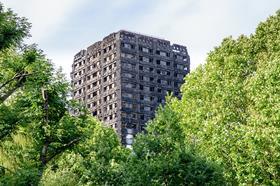- News

All the latest updates on building safety reformRegulations latest
- Focus
- Comment
- Programmes
- CPD
- Building the Future
- Jobs
- Data
- Subscribe
- Events

2024 events calendar
Explore now
Building Awards
Keep up to date
- Building Boardroom
Government looks to toughen building regs on fire safety
By Jordan Marshall2018-04-12T06:01:00

Source: C. Hoyer / Shutterstock.com
Consultation focuses on restricting or banning ’desktop’ studies following the Grenfell tragedy

Source: C. Hoyer / Shutterstock.com
New rules designed to strengthen fire testing for cladding systems on residential buildings in the wake of Grenfell have been published for consultation by housing secretary Sajid Javid.
The consultation will look at restricting or banning the use of desktop studies as a way of assessing the fire performance of external cladding systems. The government has also asked whether desktop studies should be used at all.
Desktop studies take the results of full-scale fire tests on cladding systems and model variations to the specification to demonstrate equivalent fire performance.
…
This content is available to REGISTERED users
You are not currently logged in.
LOGIN or REGISTER to access this story

LOGIN or REGISTER for free access on selected stories and sign up for email alerts.
Take out a print and online or online only subscription and you will get immediate access to:
- Breaking industry news as it happens
- Expert analysis and comment from industry leaders
- Unlimited access to all stories, including premium content
- Full access to all our online archive
Get access to premium content subscribe today

















